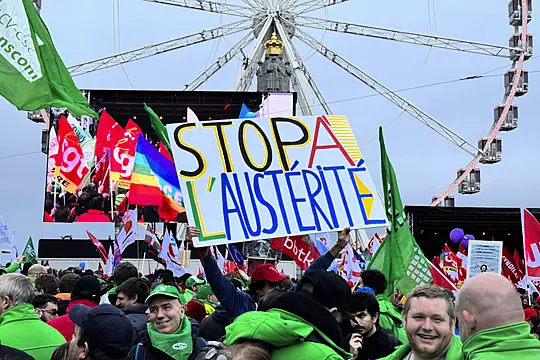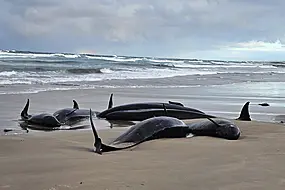Thousands of protesters gathered in the capital of the European Union on Tuesday, calling for better public services, salaries and living conditions.
The protest in central Brussels took place during EU negotiations over the new Stability and Growth Pact, which aims to limit debt and deficits for member countries.

Nations seeking to spend their way out of a crisis would instead implement a set of economic policies such as budget cuts and tax increases.
However, critics say the policy, known as austerity, will not work.
The European Trade Union Confederation, which represents 45 million members, claims the planned reinstatement of the Stability and Growth Pact will force 14 member states to cut a combined 45 billion euros (£38.6 billion) from their budgets in the next year alone.
🛑No way! We won't Pay!
📢 We will get louder and louder
🌱This is only the beginning of our fight
✊Together we will win!#TogetherAgainstAusterity pic.twitter.com/V5hPtmAbnn— EUROPEAN TRADE UNIONS (@etuc_ces) December 12, 2023
ETUC general secretary Esther Lynch said a return to austerity “would kill jobs, lower wages, mean even less funding for already over-stretched public services and all but guarantee another devastating recession”.
Inflation in Europe dropped more than expected to 2.4% in November, the lowest in more than two years, bringing some relief to households severely hit by the economic effects of the coronavirus pandemic and the war in Ukraine.
But the economy has stalled this year, even shrinking 0.1% in the July to September quarter, according to Eurostat, the 27-nation bloc’s statistics agency.
The Stability and Growth Pact, which has often proved difficult to enforce and has served as a source of tension, was suspended during the Covid-19 pandemic but is set to be reactivated in 2024.

Current rules stipulate that member states’ total public debt must not exceed 60% of their gross domestic product, and their annual deficit must be kept below 3%.
According to the latest EU figures, the highest rates of government debt to GDP were in Greece with 166.5% and Italy with 142.4%, with four other nations also breaking the 100% mark.
Ms Lynch added: “Austerity has been tried and it failed. It is time to learn the lessons of the past and ensure the EU’s economic rules put the wellbeing of people and the planet before totally arbitrary limits.”
🔴The rise of the far right across Europe is a direct consequence of austerity
Leaders should keep that in mind as they consider new economic rules for the EU #TogetherAgainstAusterity
📰@EstherLynchs for @socialeurope: https://t.co/CgUEz81YeO pic.twitter.com/DlY99hbzDM— EUROPEAN TRADE UNIONS (@etuc_ces) December 12, 2023
With 2024 European elections looming and a rise of the far-right across the continent, ETUC also warned that “the far-right is the main beneficiary of the type of fiscal policies being proposed”.
It called for measures to exclude investments for social and climate targets from spending limits.
The union also asked governments to keep in place solidarity mechanisms introduced during the coronavirus crisis such as the Recovery and Resilience Facility, a multibillion-euro plan devised to help EU countries breathe new life into their virus-ravaged economies.







